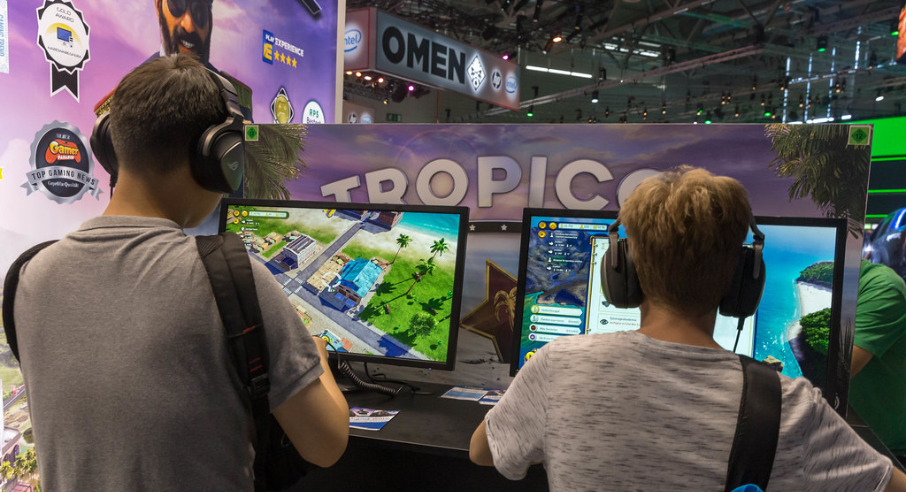Features of Simulation Games
2024-12-17

Simulation games are a genre of video games designed to emulate real-world activities. These games provide players with an opportunity to experience scenarios that replicate aspects of everyday life, vocational tasks, or other real-world functions. Often used for entertainment or educational purposes, simulation games offer a distinct blend of realism, strategy, and interactive engagement. This aims to explore features that define simulation games and discuss their significance in the landscape.
Realistic Replication and Accuracy
One of the core features of simulation games is their commitment to realism. Developers of these games invest a significant amount of time and resources into researching real-world systems to accurately model them in their games. This attention to detail ensures that the simulation offers an authentic experience, accurately reflecting the complexities of the task or environment being emulated.

For instance, flight simulation games require meticulous modeling of aircraft behavior under various conditions, as well as an authentic representation of geography and weather patterns. Similarly, farming simulators strive to accurately represent agricultural processes, including crop growth cycles, weather effects, and machinery operation. This level of accuracy not only heightens the sense of immersion but can also be used as an effective educational tool, allowing players to learn about a specific domain through hands-on interaction.
Complex Systems and Mechanics
Simulation games often incorporate complex systems that players must understand and manage. These systems can include economic models, environmental variables, or social dynamics among characters within the game. Players are typically required to make strategic decisions based on these systems, which can impact the outcome and progression of the game.
In city-building simulators, for instance, players must balance budgets, city planning, service provision, and the needs of the citizens to create a thriving metropolis. In business simulation games, players have to manage resources, market conditions, and competition to grow their company successfully. Mastery of these systems can demand a deep understanding of the underlying mechanics and strategic planning.

Interactive Learning and Education
Simulation games often serve a dual purpose: entertainment and education. These games can be powerful teaching tools, providing a virtual environment where players can learn through doing. Players are able to experiment with different approaches to problem-solving, understanding the consequences of their actions in a risk-free environment.
Educational institutions and industries have leveraged simulation games for training purposes. These simulations can help students and professionals acquire new skills, understand complex systems, and practice their craft without the real-world risks associated with trial and error. From surgical simulators that help medical students practice procedures to business simulators that teach management and entrepreneurial skills, simulation games have found a niche in professional development and education.
Creative Expression and Customization

Another hallmark of simulation games is the freedom they offer for creative expression. Many simulation games feature robust customization options that allow players to tailor aspects of the game to their personal preferences. This can include customizing the appearance of characters, buildings, and vehicles or even altering gameplay mechanics through mods and in-game tools.
The Sims series, for example, provides extensive customization options for gamers to create unique characters, design intricate homes, and establish complex relationships. On the other hand, games like Minecraft allow players to manipulate the game world itself, building structures and ecosystems from the ground up, limited only by their imagination. This creative freedom not only enhances the immersive experience but also encourages return playability as there's always something new to create or modify.
Emotional Engagement and Narrative

While simulation games are not typically known for heavy narrative elements like role-playing or adventure games, many do incorporate storylines or situations that provoke emotional investment. These narrative components can be pre-scripted or emerge organically based on the player's actions within the game. This tends to create a more compelling experience and can significantly impact player engagement.
Games that simulate real-life experiences, such as Animal Crossing or Harvest Moon, often feature character interactions that form the backdrop to the game's primary mechanics. These interactions can lead to friendships, rivalries, and other relational dynamics that enrich the simulation experience. Players often find themselves emotionally invested in the virtual world and its inhabitants, leading to a sense of attachment and responsibility toward the game world.
An Ever-Evolving Genre
The simulation genre continues to evolve, embracing new technologies and methodologies to create even more lifelike simulations. Virtual reality (VR) and augmented reality (AR) are starting to play a more significant role in simulation games. These technologies promise to further blur the lines between the virtual and the real, offering unprecedented levels of immersion.

For example, VR flight simulators allow aspiring pilots to experience cockpit controls and aerial maneuvers in a highly realistic 3D environment. AR games like Pokémon GO merge game elements with the real world, letting players hunt and capture creatures as if they truly existed in our immediate surroundings. The future of simulation games is bound to leverage these and other advancements, continually pushing the boundaries of what is possible within the genre.
Conclusion
Simulation games are a diverse and dynamic genre, offering experiences that range from replicating real-world tasks to enabling creative expression and storytelling. Their ability to model complex systems, coupled with their educational potential and engaging gameplay, make them an enduring part of the landscape. As technology advances, so too will the realism of simulation games, offering players even more authentic and immersive experiences.






